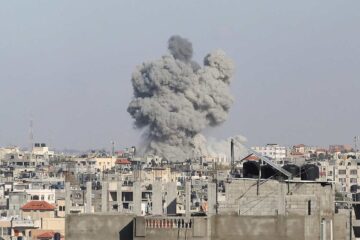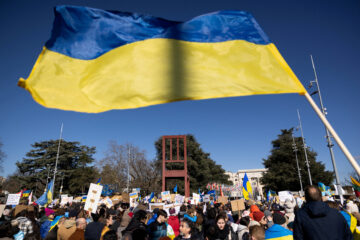Afghan Taliban leader killed in U.S. drone strike
An American drone strike targeted and "likely killed" Taliban leader Mullah Akhtar Mansour in a remote area of Pakistan, US officials said, in a major and rare American military raid in the country.
The air strike, authorized by President Barack Obama, also killed a second adult male combatant as the pair traveled in a vehicle southwest of the town of Ahmad Wal near the Afghan border, a US official said.
"Mansour was the target and was likely killed" by the strikes, which were carried out around 6:00 am (1000 GMT) by multiple unmanned aircraft operated by US Special Operations Forces, the US official added, speaking on conditions of anonymity. There were no other known casualties.
In a statement, Pentagon spokesman Peter Cook said the US military was still assessing whether Mansour had in fact been killed. The deaths of Taliban leaders have often been falsely reported, and Mansour himself was rumored to have been killed in December.
The United States informed both Pakistan and Afghanistan shortly after the strike, a senior White House official said.
News of the strike came as US Central Command chief General Joseph Votel made a surprise visit to northern Syria to witness efforts to build up local forces in the fight against the Islamic State group.
He was the highest-ranking US military official to travel to Syria since its civil conflict began in 2011.
The United States has focused its counterterrorism efforts on fighting IS in Syria and Iraq, but it also is struggling with a resurgent Taliban in Afghanistan since most US combat troops withdrew at the end of 2014.
Mansour was "actively involved" with planning attacks across Afghanistan, and presented an "obstacle to peace and reconciliation between the government of Afghanistan and the Taliban, prohibiting Taliban leaders from participating in peace talks with the Afghan government that could lead to an end to the conflict," Cook said.
Mansour was appointed head of the Taliban in July 2015 following the revelation that the group\’s founder Mullah Omar had been dead for two years.
"Since the death of Mullah Omar and Mansour\’s assumption of leadership, the Taliban have conducted many attacks that have resulted in the death of tens of thousands of Afghan civilians and Afghan security forces as well as numerous US and coalition personnel," Cook said.
Michael O\’Hanlon of the Brookings Institution think-tank said Mansour\’s death may only "modestly" help the US effort in Afghanistan.
"The war has been going on for so long, the Taliban has so many leaders and so much ability to function at the local level even without strong central guidance, that we would be well advised to keep expectations in check," he said.
US lawmakers welcomed the news and some urged the Obama administration to take a firmer stand.
"I appreciate President Obama for authorizing the attack," Republican Senator Lindsey Graham said, adding "I strongly encourage the Obama administration to not withdraw troops until conditions on the ground permit their withdrawal."
Republican Senator John McCain, head of the Senate Armed Forces Committee, said he hoped "this strike against the Taliban\’s top leader will lead the administration to reconsider its policy of prohibiting US forces from targeting the Taliban."
Pressure has been building in recent months for the United States return to direct engagement with the Taliban, particularly via air strikes.
"We need to take the gloves off those forces already in-country," namely those belonging to the United States and NATO, and authorize air strikes, David Petraeus, the ex-CIA director and former commander of coalition forces in Afghanistan and Iraq, wrote in The Wall Street Journal this week.
NATO ended its combat mission in Afghanistan in December 2014, pulling out the bulk of its troops, although a 13,000-strong residual force remains for training and counterterrorism operations.
The Taliban, which announced the start of its annual spring offensive last month, has already stepped up its campaign against the Western-backed Kabul government for the season.
Kabul is desperately seeking to bring the insurgent group back to the negotiating table to end their conflict which began in 2001.
Buoyed by a series of victories on the battlefield, the fighters have so far refused to talk until their conditions are met, including the departure of all foreign soldiers from Afghanistan.
However, Pakistan on Wednesday hosted a fresh four-nation meeting aimed at reviving the long-stalled direct peace talks.
Born in the southern Afghan province of Kandahar sometime in the early 1960s, Mansour was part of the Taliban movement from its start in the 1990s and has effectively been in charge since 2013, according to Taliban sources.
He has shunned public appearances. The few pictures believed to be of him show a thickset man with the dark beard and turban that are virtually the uniform for senior Taliban cadres.
Mansour spent part of his life in Pakistan, like millions of Afghans who fled the Soviet occupation.
He succeeded Omar, the one-eyed warrior-cleric who led the Taliban from its rise in the chaos of the Afghan civil war of the 1990s.
SOURCE: AFP
[do_widget_area inner_adsbar]










